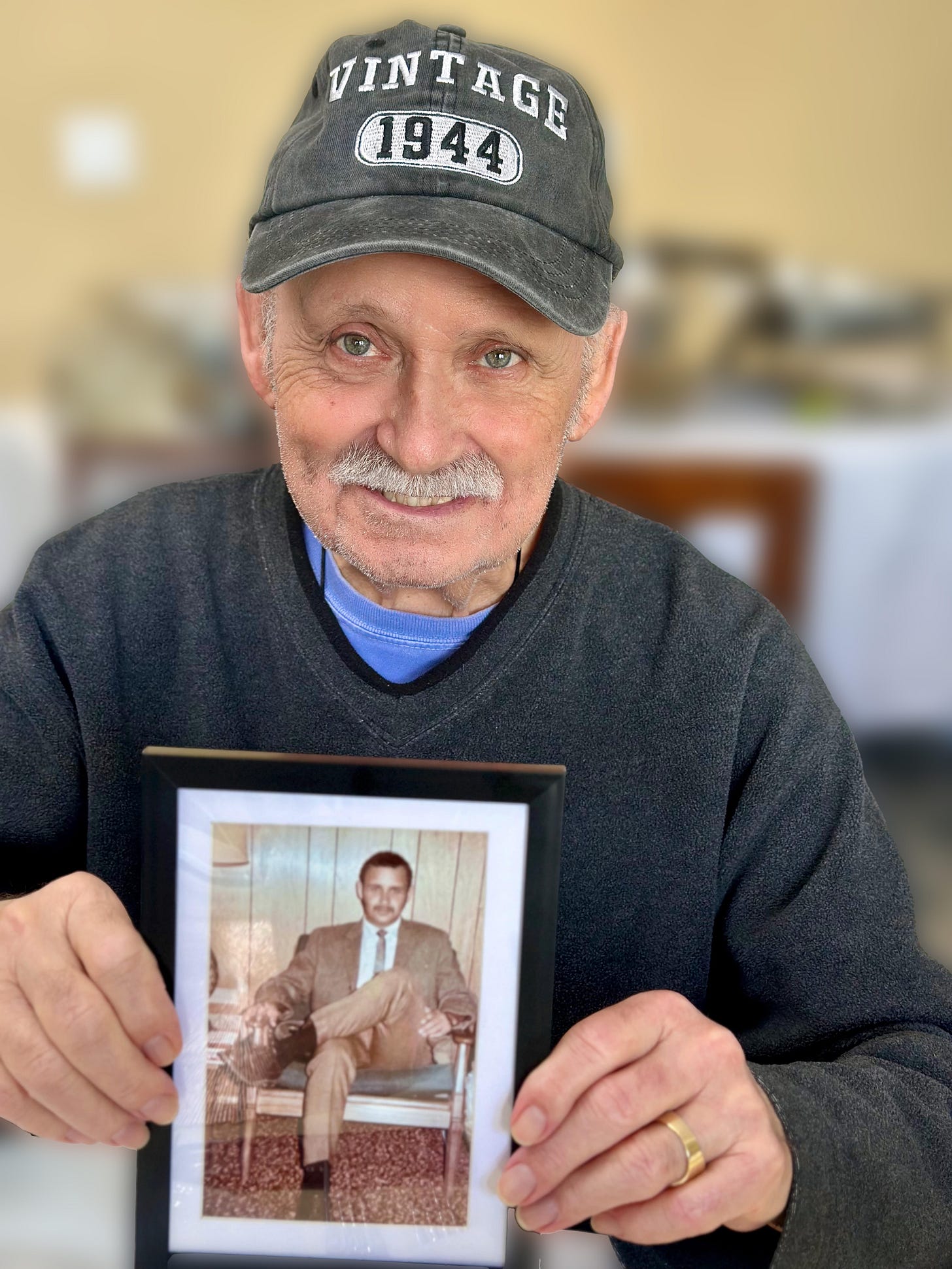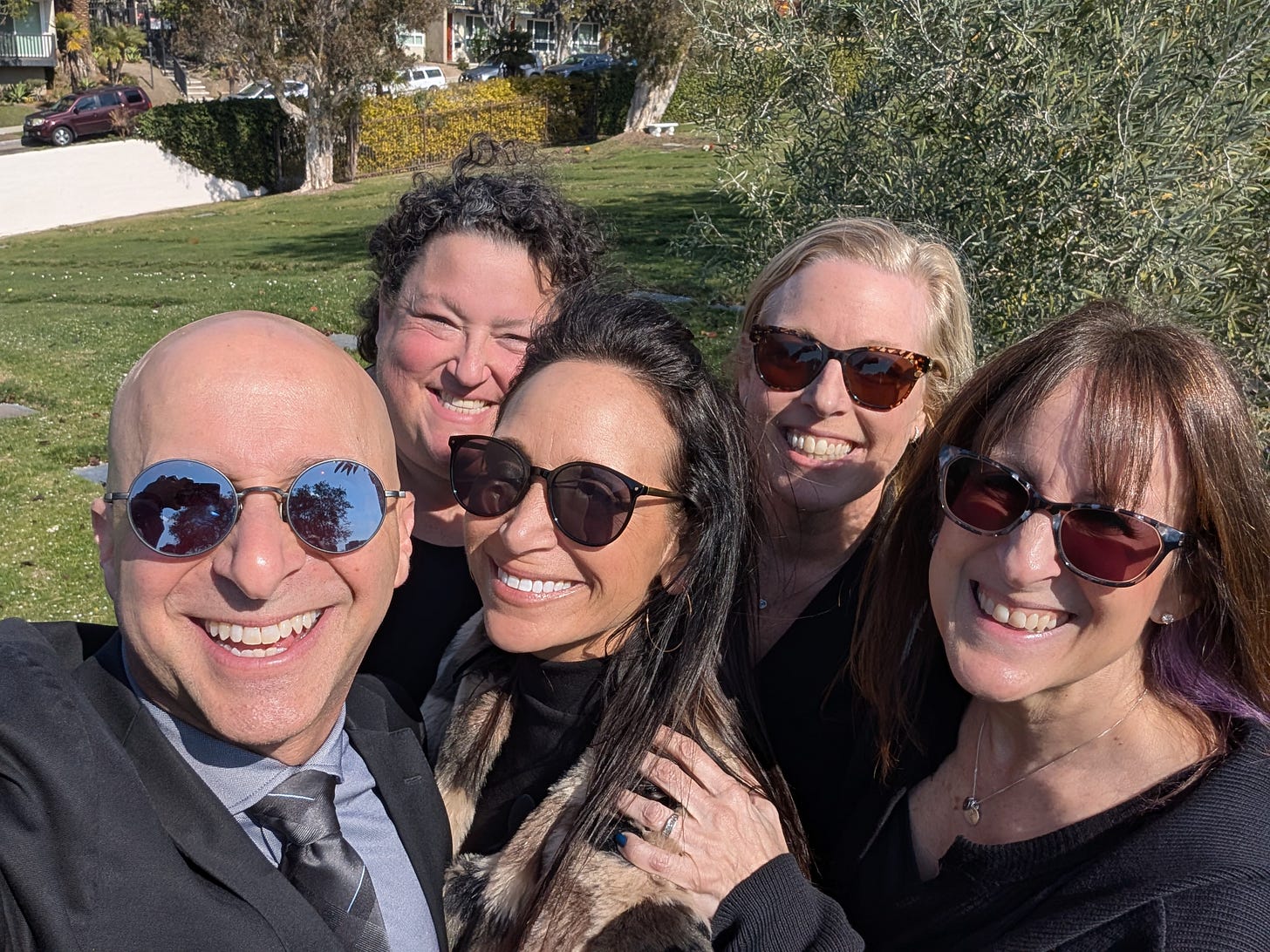It was 9 PM when my cousin asked me that question. Her father (my uncle) had died 12 hours prior and the two of us found a few moments to connect on the phone.
I calmly replied, “Sari, if you and your mom want me to do the eulogy it would be an honor and a privilege. But first and foremost, this is about what the two of you want. What I want is to do whatever the two of you need.”
I was relieved with my reply in the moment. I hoped it sounded supportive and gracious.
Of course, part of my brain wanted to reply, “No, I don’t want to do this. I don’t want my uncle to be dead. I don’t want to go to his funeral. I don’t want to talk with people and have the hard conversations about their memories and grief. I don’t want to go through the process of crafting a eulogy. I don’t want any of it. I just want us to be kids again.”
But that’s not how you answer that question when it’s put to you.
“Ok. I’ll talk to Mom, and we’ll let you know tomorrow,” she replied.
Not an Option
What did you want to be when you grew up?
For me it ranged from professional athlete (too short), rockstar (can’t sing), astronaut (I don’t have the right stuff), or the Secretary of State (I chose a career in technology and education vs. politics).
Becoming the person who does the family eulogies? This is not something I ever thought about wanting to be when I grew up. In fact, no one aspires to that role when they are a young boy or girl.
I’ve now done seven eulogies: three grandparents, my mother-in-law, my father-in-law, my brother-in-law, and my uncle.
Each eulogy followed a similar process — you begin by interviewing a few people close to the deceased. You ask open-ended questions: What words would you use to describe him? Any good (and appropriate) stories that you remember about her? What will you miss the most? What did he mean to you? What would you say to her if you could?
You also ask the perfunctory: Where was she born? Where did he grow up? What was his high school? Do you remember any hobbies or activities from when she was a kid?
Some conversations are great — people share their memories and feelings openly. You learn things about your family that you never knew. Hidden events come to life. You decide whether to use these stories in the eulogy — or not.
Some conversations are more stilted as people mask their grief. They share superficial thoughts and memories. You try probing questions but from slightly different angles.
Always gently. Always delicately.
What will fit in the eulogy? What is the mood? What is the tone to set?
You look for themes — somewhere between three and five key messages that will get the people at the funeral nodding in agreement.
Humor works when it is gentle. Funny stories. Endearing stories. Kind stories. You try to weave in some appropriate quotes and poems from wise thinkers of the past. You look for streams and the essence of the deceased. You strive to connect to the mourners. You hope to make them feel good and a bit wistful. You look to find a way for them to see that our cups are not only half-full, but, really, they overflow.
As the memories are recalled you ask yourself, “Who was this person who died? How much did I truly know them? What was their life really like? What was it like growing up in their home? How did they feel when they fell in love with their spouse? What were they like in college? Why didn’t they go to college? Did they have fun in their life? What were they feeling when they were my age? Did their life go as expected?”
It’s Different as We Get Older
I did my first eulogy at the age of 35 for my father-in-law. My wife and her siblings did not want to speak at the funeral as they feared they’d have a hard time holding it together. Somehow, I got asked if I would do it.
Of course, the answer had to be, “Yes.” In those moments we stand up for those who need us to do so.
I turn 57 years-old this May and I realize now that I have a very different perspective about these events than I did when I was younger. Perhaps most obviously, we more readily confront our own mortality in these moments as we age.
Will anyone come to my funeral? Will my loved ones still be alive? My parents? My wife? My sister? What about our children — will they be ok? If my wife dies before I do, will I lose touch with my wife’s family? What would my life be like if I were alone?
In Anna Karenina Leo Tolstoy wrote:
All happy families are alike; each unhappy family is unhappy in its own way.
Our family is no different than any other. When someone dies, we wrestle with the stress of the day. The emotions. The ceremony. The family gathering after the ceremony. Decades and decades of family dynamics.
When my sister-in-law passed away last year I saw dynamics in my wife’s family.
So many families are the same — but each in their own unique way.
But we also find blessings and comfort in the common bonds. We rekindle the things that are good which don’t change over decades.
Like cousins who grew up together and love each other and will always be close even if life has taken us further apart from when we were little children.
I Remember My Uncle, Ron Morris
My uncle was a good man. A kind man. He had a challenging life but gave the world so much joy. From his eulogy…
I think of Ron and the life that he lived, and that he was a model of kindness and silliness and strength.
He was strong but not hard.
He was humorous but not flippant.
Life gave him many reasons to be bitter but instead he gave us all graciousness.
Ronald Leonard Morris was born on April 5, 1944, and he died on February 5, 2025.
Rest in peace, Uncle Ronnie, and may G-d bless you.






Hi Rob,
So sorry to hear of your Uncles passing. I have experienced hearing your eulogies, (of course) and am heartened to hear how much you prepare for them. I have always felt your compassion through your words, and know how sincere you are during a eulogy. (Somehow I wish I could have had your expertise when we experienced our loss this past Spring. Although we did gather, it was different, and perhaps a more formal time was what I needed at that time, although it was not for everyone). I appreciate you very much, thank you.
On another note, I know your family will be comforted by your love and words ,and seeing your uncle’s face is beautiful. I see the love in his eyes, take care..
Another inspiring lecture! Introduction to Eulogy. I always learn something from your offerings. I appreciated that you included the photo of your uncle. It felt right to see his face. Love to all the family. Jan